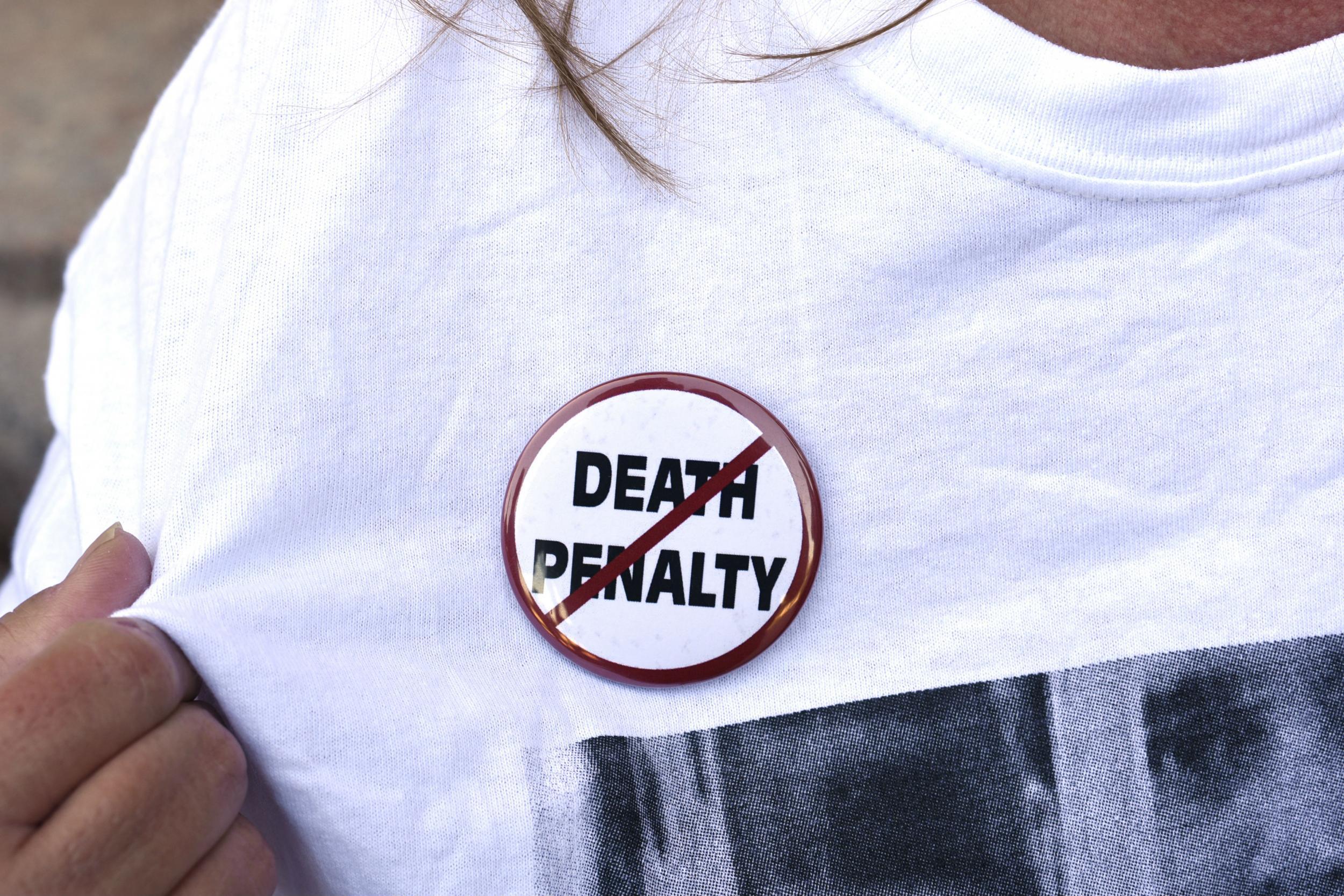Ohio to resume executions in January with new ‘three-drug method’ after controversial death of Dennis McGuire
New survey shows support for the death penalty slipping in America

Your support helps us to tell the story
From reproductive rights to climate change to Big Tech, The Independent is on the ground when the story is developing. Whether it's investigating the financials of Elon Musk's pro-Trump PAC or producing our latest documentary, 'The A Word', which shines a light on the American women fighting for reproductive rights, we know how important it is to parse out the facts from the messaging.
At such a critical moment in US history, we need reporters on the ground. Your donation allows us to keep sending journalists to speak to both sides of the story.
The Independent is trusted by Americans across the entire political spectrum. And unlike many other quality news outlets, we choose not to lock Americans out of our reporting and analysis with paywalls. We believe quality journalism should be available to everyone, paid for by those who can afford it.
Your support makes all the difference.Ohio has said it will resume executions after a hiatus of nearly three years that began after the state botched the dispatch of Dennis McGuire with a two-drug lethal combination that hadn’t been tried before. He was seen gasping and snorting for 26 minutes before being declared dead.
A representative of the Ohio attorney general’s office told a judge in Columbus that the state was ready to use a three-drug lethal injection and expected to put it into practice with a first execution it in the new year.
Thomas Madden told the court on Monday that the new formula for ending the lives of convicts on death row would consist of midazolam, which puts the inmate to sleep; rocuronium bromide, which paralyzes the inmate; and potassium chloride, which stops the heart.
The announcement will come as a disappointment to the anti-death penalty advocates who less than a week ago where buoyed by a new Pew Research poll showing support for capital punishment in the United States falling below 50 per cent for the first time in fifty years.
Several states which normally lead the way in executions in the US have struggled to keep up their normal pace in the last several years or, like Ohio, gave up for a while because of a shortage of drugs traditionally used to end the lives of the condemned.
The shortage occurred because two of the drugs traditionally used in the execution chamber - sodium thiopental and pentobarbital - are not available in the United States. Meanwhile their manufacturers who are overseas declared they would not sell them to states that intended to use them to kill prisoners.
Ohio now says that it expects to execute three prisoner during 2017 with its new three-drug combination. Among them will be Ronald Phillips who was convicted in the rape and murder of his girlfriend’s 3-year-old daughter in Akron in 1993.
Lawyers representing inmates on Ohio’s death row indicated that they planned to appeal the state’s new execution protocol as soon as it is released, which should happen next week. There are currently more than 130 inmates on the states death row.
They are likely to seize on the fact that midazolam was one of the two drugs used on McGuire at his execution in January 2014. The nearly half-hour it took for him to expire was the longest ever seen in a lethal injection execution in the state. The ensuing controversy persuaded Governor John Kasich to put further executions on hold until the state was ready with a new protocol using drugs that were certified safe and supplied by reputable laboratories.
“Following the McGuire execution debacle, they very deliberately and specifically refused to use midazolam any longer for an execution, so it's disappointing to see that that's back in there,” Allen Bohnert, a public defender in Ohio, said.
However, the US Supreme Court upheld the use of such a combination in a ruling last year regarding Oklahoma's execution protocols.
Mr Kasich signed a law that protects the identities of drug manufacturers helping fulfill the needs of its executioners so they would not have to fear public opprobrium for facilitating the emptying of death row.
The new Pew Research poll showed that 49 per cent of Americans now support the death penalty, a drop of 7 per cent in a year and the first time it has dipped below 50 per cent since a Gallup poll showed a similar level of support in 1971.
Public opinion has been swayed in part by a parade of death row inmates being exonerated, often after DNA techniques that were not previously available have shown that their convictions had been faulty. Some 157 cases of death row exonerations have been recorded. Three men convicted of a murder in Puerto Rico were exonerated last week thanks to new DNA evidence.
Three states, including California, will vote this November of ballot initiatives formally to remove the death penalty from their books.
Join our commenting forum
Join thought-provoking conversations, follow other Independent readers and see their replies
Comments